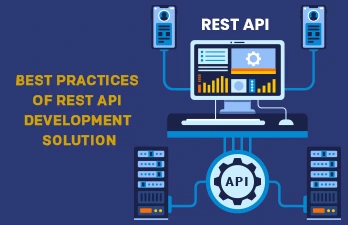Most of the companies looking for digital transformation follow a DevOps culture for producing advanced applications as well as services at a much higher velocity. It is because adopting DevOps culture will always encourage transparency, quick feedback, and shared responsibility that assists to minimize the gap between teams and thereby speeding up all the processes. GitOps has shown a real value to many small as well as big organizations. It is a robust tool to manage cloud infrastructure which offers various advantages without many tooling choices. Like DevOps, GitOps also has various advantages like stability, communication, system reliability, and visibility.
What is DevOps?

DevOps main focus is to eliminate the silo culture. It always makes the teams collaborate with each other to deliver advanced features more easily and quickly, deploying very frequently, and resolving any potential problems quickly in case there is any failure. Even though DevOps is mainly concerned with the development as well as IT operations teams, any company that implements DevOps will get all stakeholders together.
What is GitOps?
GitOps is an appropriate System Operations (ops) procedure binded to a particular tool (Git). It is an advancement of Infrastructure as Code (IaC) and a DevOps good procedure which utilizes Git as a only source of control and truth mechanism for updating, deleting, and creating system architecture. In simple words, GitOps is the method of making use of Git pull requests in order to deploy and verify automatically any changes in the system infrastructure. Importantly, any organization which has a DevOps practice can make use of GitOps, but is not mandatory. Also, not each and every company that uses GitOps needs to have a DevOps practice.
GitOps Use cases
There are many use cases which make use of GitOps. Let us discuss some of the most common use cases in which GitOps is being used.
Smart city services
The usage of these services usually come with a challenge that rolls out as well as managing even a complex platform, and all the GitOps procedures will assist with handling any complexities in the operations.
Network slicing
GitOps will easily allow service providers to transform service tiers as well as enable customers to pay for the specific bandwidth which they have used or needed. This refers to high quality pricing for video streaming and minimum prices for all the connected IoT devices.
Addressing network congestions
This is a most popular thing in the 4G networks, mainly in heavy populated regions. It can be resolved if 5G extends maturity. But the principles of cloud-native are needed to manage and provision the various edge nodes, that means utilizing Kubernetes and GitOps.
GitOps vs. DevOps
There are many differences between GitOps and DevOps. Let's have a detailed look at the major differences between GitOps and DevOps.

Approach
GitOps follows a specific technique which makes use of the tool Git for managing infrastructure equipment as well as software deployment whereas DevOps follows a culture which will focus on CI/CD that is not bound to any particular tool.
Tools
GitOps uses various tools, mainly Git. Other tools include Kubernetes, Infrastructure as Code, separate CI/CD pipelines, etc. Devops mainly uses CI/CD pipeline tools. Other tools include Cloud Configuration as Code, Supply chain management, and more.
Focus
GitOps focuses on accuracy and doing DevOps precisely while DevOps mainly focus on frequent deployments as well as automation.
Correctness
Coming to correctness, GitOps is designed keeping in mind correctness and fidelity while Devops focus very less on the correctness.
Flexibility
While discussing flexibility, GitOps is less open and stricter whereas DevOps is more open and less strict.
How does GitOps integrate with DevOps?
Their shared rules will make it very simple to follow a GitOps workflow to existing actively involved DevOps methodologies. Git is the very popularly utilized version control system in the present day all over the world. So as organizations adopt more DevOps techniques, they may utilize the tools that have led to the progress of GitOps.
While considering the fact in which GitOps will more significantly improve overall productivity of a DevOps team. Also, soon after experimenting with the latest infrastructure configurations, any team can utilize Git history to return changes to a familiar condition if the latest changes did not act as expected. This unique feature is very substantial because it may act like an undo button in the complex infrastructure.
Conclusion
Even though GitOps and DevOps seem to be similar, there are many differences between them which need to be understood before implementation. Nextbrain Technologies is the leading web and mobile app development company in Bangalore offering ultimate DevOps consulting services and solutions to improve communication and overall performance of your business.





Saran
November 09, 2021 Author